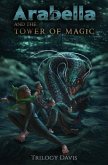Mioritza, the Magic Lambkin-as my English version goes-was translated in 1997; it was included in my doctoral thesis in psychoanalysis, but never published. It was intended then, as it is now, as a contribution to the English speaking world in view of a trans-cultural dialogue. I finally decided to publish the translation for the general public now, prior to my forthcoming book A Dreamlike Ballad: Mioritza, the Magic Lambkin, where I offer an interpretation inspired by psychoanalysis. I urge you to read the translation before the Translator's Note. But, first, I will tell you how I came to know the ballad. * Once upon a time, there was a time... when we had time. We had more time to read and listen to old fairy tales and stories, like this one. Mioritza is a folk tale, "a story from the olden times," that Romanians used to know almost by heart, loved it as poetry, and so widespread that it came to be called "the national ballad of the Romanians." It was told at folk festivals in all the Balkan area where Romanians lived-there are also versions of it in the Aromanian dialect-and rhapsodes often recited it accompanied by instruments or sang along its traditional tune. The poem was to be found in children's books and in elementary school texts, was frequently included in televised events, but also analyzed and discussed in higher intellectual circles. I first listened to Mioritza on TV when I was 7 or 8; I remember how moved I was by the story of the young Moldavian shepherd. I bought the children's book-it was large, with pictures and drawings. I loved it right away because there was a magic lambkin who talked to the shepherd trying to warn him that two neighbor shepherds had plans to murder him and rob him of his flock. There was nothing unusual for a child of that age that a beloved animal would help the hero against evil characters-it was natural for me as for any child, anywhere in the world, reading any other fairy tale. * Listening to the lambkin's warning, and instantly siding with the shepherd, I wanted to know what would happen. But... I will not tell you what it is! I'd rather have you read the story, so you can let me know directly how you feel about the ending! No, I am not kidding! Here is my email address so that you can write me directly all you want: adrian.sahlean@globalartsnpo.org Adrian George Sahlean
Hinweis: Dieser Artikel kann nur an eine deutsche Lieferadresse ausgeliefert werden.
Hinweis: Dieser Artikel kann nur an eine deutsche Lieferadresse ausgeliefert werden.








